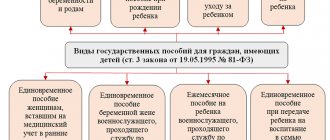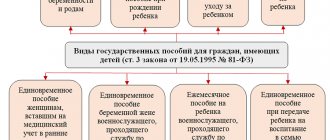Last update: 01/11/2020
The concept of property rights is reflected in Art. 209 of the Civil Code of the Russian Federation, and assumes that the owner has unimpeded rights to own , use and dispose of his property (in this case, an apartment). Provided that the owner’s actions do not violate the law and the rights of other people.
The fact that someone has ownership rights to an apartment is an electronic entry in the Unified State Register of Real Estate (USRN), and confirmation of this fact is an extract from this register, or a paper Certificate of Title (Title).
A restriction (encumbrance) may be imposed on the right of ownership In particular, the encumbrance is a mortgage.
An apartment can be owned by one person or owned several people.
If with the property of one everything is more or less clear - individual , then with the property of several persons there may be options: it can be common joint or common shared (Article 244 of the Civil Code of the Russian Federation).
The type of ownership is indicated in the Title to the apartment, as well as in the Extract from the Unified State Register of Real Estate. The rights and opportunities of its owners to dispose of this apartment depend on the type of ownership of the apartment
Where is it better to buy an apartment - on the “primary” or on the “secondary”? Comparing the pros and cons.
The head of the legal department, Vladislav Frolov, answers:
As far as I understand, your marriage has not been registered with the registry office. The bank will be repaid by only one person - the borrower, who, in all likelihood, will be you. In the absence of an official marriage, it is unlikely that the bank will allow you to register shared property with someone unless he is a co-borrower.
In this situation, your girlfriend should become a co-borrower, and the purchase and sale agreement should reflect what belongs to you in the apartment? shares in property rights, and she - ?. In addition, it is necessary to indicate that the down payment in the specified amount is made from funds from the sale of an apartment that previously belonged to you.
You and your girlfriend will need to enter into an agreement under which she will be obliged to transfer you funds in the amount of ? loan installment until the loan obligation is fully repaid.
Both buyers
For transactions with two buyers, the rules already mentioned above apply, and the process of registering real estate depends on whether the property is registered in shared or joint form.
The first thing the apartment owner should ask is these questions::
- Is the buyer married?
- Who will be the owner of the property?
Married or not
A married buyer can buy an apartment subject to registration as common or shared ownership. By default, the property becomes common property. At the same time, you do not need to present any additional documents to purchase an apartment, except for the spouse’s permission to purchase. If the buyers decide to register the property as shared ownership, each of them will act as a full owner. Such transactions must be concluded with two buyers and a seller.
How to register real estate for a couple?
The Civil Code of the Russian Federation (Article 247) provides for the possibility of registering real estate as shared ownership. Each owner in this case receives the same rights, manages his share independently and undertakes to bear the costs of its maintenance (including tax expenses in favor of the government). The contract is concluded with each buyer separately; the use of one form is allowed .
How to register the acquisition of an apartment by spouses as joint property is written here.
How to draw up a contract?
The DCT can be drawn up either on one form or for each buyer separately - there is no fundamental difference between the two mentioned options.
As a rule, the owner chooses the method that is most convenient for him . Since each buyer will have his own right of ownership registered in Rosreestr, it is necessary to enter into the DCT not only the characteristics of the apartment, but also the share of each citizen (in square meters).
Remember that the value of the property is an essential characteristic and must be stated. To purchase an apartment with subsequent registration of shares, the cost is calculated based on the number of square meters for each. That is, the cost of one square meter should be entered in the document, and then the total amount should be calculated.
It also happens that shares are purchased at different prices . This point should also be fully described in the contract. Indicate the cost of one square meter for each owner and calculate the total amount that must be transferred to you.
Features of the purchase if the owner is a child or incapacitated
If the sellers are parents, and there is a child among the share holders, then it will simply not be possible to buy such housing. To purchase such property, parents will first have to obtain consent from the guardianship authorities. In turn, officials will give permission for the sale only if the child is simultaneously given a share in other property. Thus, it is realistic to buy such real estate only through an alternative transaction.
Most often, the child becomes the owner of the share if the housing was purchased with maternal capital. Therefore, check whether the mortgage has been issued and whether the encumbrance has been removed. Otherwise, when conducting a transaction, you may encounter unpleasant “surprises”.
If among the owners there is a citizen declared incompetent by the court, then the other owner of the property will also need to obtain the consent of the guardianship authorities.
You should also pay attention to the moment of discharge. It is better if children and incapacitated citizens are discharged before the sale of housing. This will not prevent the registration of the transfer of ownership in any way, but in the future there may be difficulties with the extract.
Type of common shared ownership: communal apartment
With communal apartments the situation is somewhat different. There can also be two or more owners. A communal apartment refers to common shared ownership, where the distribution of shares occurs according to the area of the occupied rooms. But there are also common areas - a corridor, a kitchen, a bathroom - which are, accordingly, common property, which must also be distributed in shares. By the way, it may not be distributed, but if the room is sold, it is imperative to secure these shares in the common areas, otherwise the room will not be sold . The allocation of these shares takes place at the notary, by agreement of all owners of the property. Therefore, when buying a room in a communal apartment, you should pay attention to whether shares are allocated in the common areas of the apartment.
In addition, another important document that the owner must have when selling is the consent of all his neighbors to sell. This is explained by the fact that they have the right of first refusal to purchase his share. That is, first the owner of the room must offer it to his roommates to buy it, and only then put it up for open sale. Refusals must be in writing. Because if the sale of an apartment is carried out without notifying other owners, they can sue for violation of their rights. Therefore, the availability of these documents must be clearly checked when purchasing.
If it is impossible to obtain a refusal from the owner himself for some reason, he must be notified by sending a letter with acknowledgment of delivery. A month must pass after such notification, and only then the apartment can be sold.
If you still have any questions about purchasing an apartment from two or more owners, then our on-call lawyer is ready to advise you free of charge.
If one of the owners of the apartment is a child
What to do if one of the owners of the apartment being purchased is a child? The consent of his parents or guardians is not enough here. In order to purchase property owned by two owners, one of whom is a minor, you must obtain appropriate consent from the guardianship authorities. Permission will naturally be obtained by the parents or guardians, but the buyer must ensure that such permissions have been obtained. Otherwise, the transaction may be subsequently declared illegal.
It is also worth looking at the list of persons registered in the apartment. If a child is registered there, this is also a kind of obstacle to purchase. You can’t just write him out, the guardianship authorities prohibit it. Therefore, it is worth making sure that there are no minor children on this list. And if there is, it’s worth waiting for the moment when he is discharged from there and registered at a different address.
If the apartment is jointly owned
When the certificate is issued in the name of only one of the owners, but in fact there are two of them (husband and wife, for example), when selling an apartment, you need to obtain notarized consent from the second owner. Otherwise, the transaction may be declared invalid.
How to find out that an apartment is jointly owned? Ask the seller to show the certificate of ownership, look at the date it was received. You also need to look at your marriage (or divorce) certificate. If an apartment was purchased (or exchanged) during marriage, the property is joint. Require notarization of the consent of the second owner.
If both owners have certificates, they must both express consent to the sale (orally, not notarially).
Attention! As of July 15, 2021, certificates of ownership have ceased to be issued. Now the main document is an extract from Rosreestr. However, previously issued certificates are valid.
What the buyer needs to know
Joint ownership of real estate is the norm rather than the exception. The reasons why two people turned out to be co-owners of an apartment may be :
- buying an apartment during marriage;
- inheritance of housing by several people;
- privatization of their apartment by spouses;
- purchase of housing by several people at the same time, etc.
There are two types of such property:
- shared - a situation where shares are clearly distributed among the owners;
- general - the shares are not distributed, but each owner cannot dispose of the property without the consent of the other.
Expert opinion
Stanislav Ershov
Qualified lawyer. Ready to answer any of your questions! Ask them right now!
Write to an expert
Each type of ownership has its own characteristics that the buyer must take into account. If you purchase housing from shared owners, you will need to include each of them in the contract or even draw up a separate agreement with each of them. If the managers of the property are several people united by common property, then the agreement is drawn up with one of them, but the rest must give their consent.
Also, “common” owners can distribute their shares in advance and sell them separately or under one agreement.
Rights of co-owners of shares in residential premises
To understand what joint property is, let us turn to the legislative acts. The Civil Code contains an entire chapter (Chapter 16) dedicated to common property.
Common property is property owned by two or more people (Part 1 of Article 244 of the Civil Code). When the parts of each co-owner are clearly defined, the property is considered to belong to them by right of shared ownership. When shares are not designated, it is considered that the property belongs to the right of joint ownership.
Citizens become co-owners of joint property as a result of an agreement or by a court decision.
In practice, they become co-owners of joint property in the following cases::
- Privatization of an apartment for all family members;
- Inheritance of property by several heirs;
- Purchase of property by spouses;
- Recognition of property rights by court decision.
The use and disposal of real estate is carried out by all co-owners by agreement between them. Usually this is an oral agreement; no written documents are signed. But if agreement is not reached, then the situation is submitted to the court, which determines the procedure for use. In such a situation, it is extremely important to comply with the conditions specified in the court decision. And it is mandatory for all co-owners of the property.
Have a question or need legal help? Take advantage of a free consultation:
Free legal advice by phone:
8 (Moscow and Moscow Region) 8 (St. Petersburg and Leningrad Region) 8 (Regions of the Russian Federation)
In case of joint ownership, the co-owners have the right to claim a share in kind. If other co-owners prevent this, then a judicial procedure is initiated for the allocation of shares from the common property. It is worth considering that it is impossible to allocate a share in kind if because of this the value of the entire property will be lost, damage will be caused to it, and it will be impossible to further use it for its intended purpose. In this case, the co-owner can count on compensation in monetary terms from other co-owners. After receiving compensation, the citizen loses all rights to a share of the property.
The co-owner can freely register in the apartment. In this case, it will not be necessary to obtain the consent of other co-owners.
If the owners own the property jointly
Joint ownership is usually formed when a home is purchased by married spouses. In fact, only one of them is the owner of the property - in whose name the apartment was registered. But if real estate was acquired during marriage, then in the absence of the consent of the second spouse it is not possible to sell it. Otherwise, the actions of the participants in the transaction are regarded as fraud, and any court will terminate the illegal transaction.
Consent is drawn up on a special form and certified by a notary.
The only exception to the rule is if the spouses have entered into a marriage contract between themselves, which stipulates that only one of them is the full owner and can dispose of the living space at his own discretion.
In addition, joint ownership may arise among heirs and close relatives if the apartment was purchased with a mortgage and one of them acted as a co-borrower. So, if the seller has relatives, it is necessary to obtain their consent.
Rights and obligations of shared apartment owners
The right of ownership gives the opportunity to use and dispose of one’s property. All owners can use the apartment in proportion to their share - live there, bring guests, store their belongings. The larger the share, the larger the territory you can occupy. And the right of use itself does not depend on the size of the share and the basis on which it was received. Everyone should have equal access to the common area - corridor, bathroom, kitchen and toilet. Redevelopment or cluttering the passages with your belongings will be a violation. All this must happen with the consent of the other co-owners.
Restrictions on use are possible when one of the owners has nowhere to stay in the apartment. But he still has the right to the cash equivalent of his share. And he can demand that the others pay him compensation (Article 247 of the Civil Code of the Russian Federation). If the share is insignificant, the court may force payment of compensation. What a minor share is is determined based on specifics. For example, a person owns 1/5 of a share in a one-room apartment where a family already lives.
The owner has the right to move in and register family members - parents, children, spouses - but only with the consent of the others. The exception here is children under 14 years of age; by law they must be registered with their mother. No one's consent is required for their registration. Another option when it is not needed is if a share in kind is allocated. Then the tenants have the right to use the apartment on equal terms with the owner. But only as long as they are considered family members. Divorce ends the right to cohabitation.
The owners' responsibilities are to maintain the condition of the apartment and make payments. Each of them must take part financially - pay property tax, utility bills, repairs and maintenance (Article 249 of the Civil Code of the Russian Federation). Regarding tax, everyone receives an individual notification. The rest is negotiated. According to the letter of the law, payments are distributed in proportion to shares. In practice, the agreement depends on who lives in the apartment and who uses it most.
Repairs, including all significant changes and financial expenses, must be carried out with the consent of all owners. You cannot install a shower stall without asking the permission of other residents and demanding money from them for it. The Supreme Court amended this rule: consent is not required if an apartment is purchased in a new building without finishing. You can bring it into a habitable state on your own and demand compensation from other owners.
Major repairs in a shared apartment can only be done in agreement with all owners
How can you dispose of your share in the apartment?
The owner can freely dispose of his share - use, sell, exchange, donate, bequeath, pledge (Clause 2 of Article 246 of the Civil Code of the Russian Federation). Provided that it does not violate the rights of other people. But in the case of a shared apartment, there are such restrictions.
By donating one's share, the issue of registration is sometimes resolved. For example, a man owns an apartment in equal shares with his parents. He wants to register his wife, but they are against it. Then he gives half of his share to his wife. Now she is the owner of 1/6 of the apartment and has the right to live there and register without asking anyone.
If one of the owners sells or changes his share, the rest have a preferential right to it (Article 250 of the Civil Code of the Russian Federation). This means that if they are ready to buy the room, the person does not have the right to sell it to outsiders. Technically, everything is done like this: the seller sets a price, notifies the co-owners in writing and waits for a response from them within 30 days. Options for communication: sending by mail with acknowledgment of delivery, receipt, certification by a notary. If these conditions are violated, the co-owners have the right to challenge the transaction. They can refuse the ransom earlier than after 30 days, but if there is no response from them, they will have to meet the deadline.
This rule can be circumvented within the law, but any option is fraught with risk. For example, a share is transferred under a gift agreement, and money is received in cash. Two dangers arise here at once. If payment is not received, it is legally impossible to recover it. And such a transaction can be declared invalid (sham) even without a trial - as soon as the new owner lets slip about the real conditions. Then all rights return to their original state.
Your share in the apartment can be left by will to any person, separately or as part of your entire property











